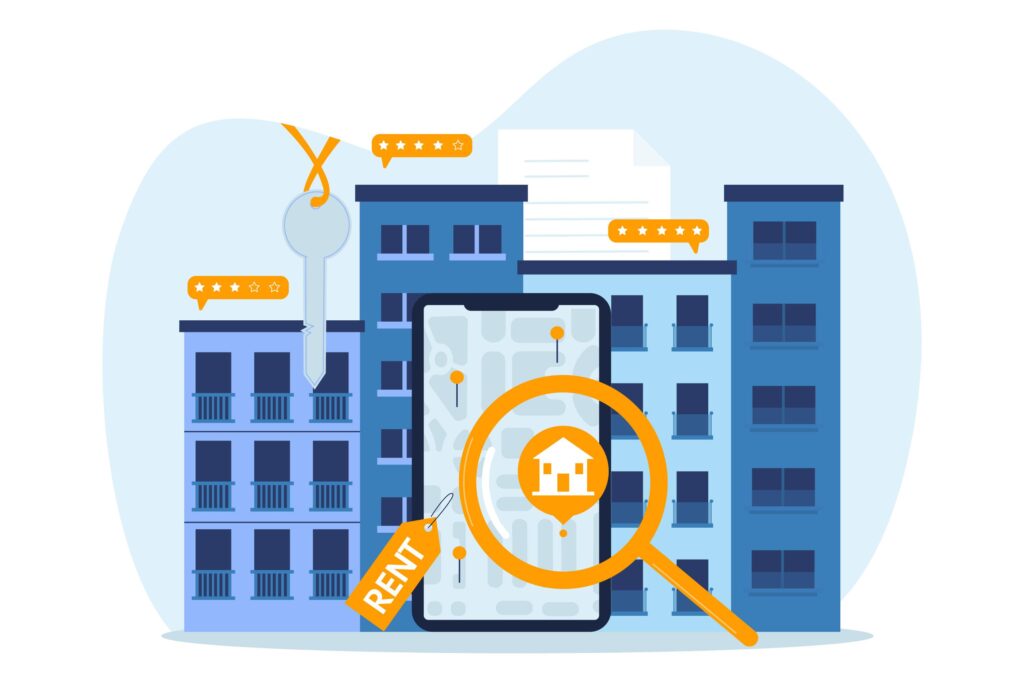Introduction
The real estate market in 2025 looks nothing like it did a decade ago. From virtual home tours to predictive pricing models, technology has reshaped how buyers, sellers, and agents interact. But one innovation stands out for its impact and intelligence—AI Real Estate app development. Artificial Intelligence has become the driving force behind smarter real estate platforms that understand user needs, predict trends, and enhance efficiency at every level.
Top real estate companies across the globe are investing heavily in AI-powered app development, not as a luxury, but as a strategic necessity. These businesses understand that to stay competitive, they must offer more than listings—they must offer experiences. Let’s explore why leading real estate businesses are embracing AI-driven app development and how it’s redefining the entire industry.
1. Unmatched Personalization for Buyers and Sellers
In a market where every customer has unique preferences, personalization has become the new standard. AI-driven real estate apps analyze massive datasets, including search history, demographics, financial capacity, and lifestyle preferences, to provide customized property recommendations.
For example, an AI app can suggest properties close to schools for families or near business districts for working professionals. It can even anticipate what users might search for next based on previous interactions.
This level of personalization enhances customer satisfaction and increases the chances of successful conversions. Top real estate companies know that when users feel understood, they are more likely to trust the platform and close deals faster.
2. Data-Driven Decision Making
The real estate industry thrives on insights—understanding pricing trends, buyer behavior, and market fluctuations. AI makes this possible through advanced data analytics and predictive modeling.
Businesses that invest in AI Real Estate app development gain access to tools that analyze market conditions in real time. These tools forecast future prices, identify high-demand areas, and even detect investment opportunities.
For example, a real estate investor can use an AI app to assess which neighborhoods are likely to appreciate based on factors like infrastructure development or economic growth. These insights empower decision-makers to act strategically and minimize risks.
By turning data into actionable intelligence, top real estate firms stay ahead of the competition and make smarter, faster decisions.
3. Enhanced Customer Engagement and Support
One of the biggest challenges in real estate is maintaining consistent communication with clients. AI-powered chatbots and virtual assistants have revolutionized customer support by providing instant, 24/7 assistance.
Whether it’s answering property-related queries, scheduling virtual tours, or assisting with mortgage calculations, these AI tools ensure customers always receive prompt, accurate responses. Moreover, they can handle thousands of inquiries simultaneously—something even the best human teams struggle with.
This round-the-clock engagement not only improves user experience but also helps businesses capture and retain more leads. Top real estate companies know that in a fast-paced digital world, immediate responsiveness builds trust and credibility.
4. Predictive Analytics for Smarter Investments
Predictive analytics is one of AI’s most powerful applications in real estate. By analyzing vast amounts of historical and real-time data, AI can forecast future market trends, pricing fluctuations, and customer demand.
For instance, developers can predict which property types will be in demand in a particular area, allowing them to plan construction or marketing strategies accordingly. Similarly, realtors can use AI insights to price listings more competitively or identify potential buyers before competitors do.
This predictive power gives businesses a huge competitive edge. It helps them anticipate changes rather than react to them, ensuring consistent growth and profitability.
5. Improved Property Visualization with AR and VR
AI integrated with Augmented Reality (AR) and Virtual Reality (VR) is redefining how customers explore properties. Instead of relying solely on static images or physical visits, users can now take immersive virtual tours right from their devices.
For top real estate companies, this feature is more than convenience—it’s a sales accelerator. AI can even personalize these tours by suggesting furniture arrangements, interior design ideas, or renovation possibilities based on user preferences.
This not only saves time for both buyers and sellers but also creates emotional engagement, helping customers visualize their dream property before making a decision.
6. Automation for Efficiency and Cost Savings
Automation lies at the heart of AI-driven real estate platforms. Tasks that once required hours—like sorting leads, managing listings, or verifying documents—can now be completed in seconds.
AI algorithms automatically categorize leads based on their likelihood to convert, helping sales teams prioritize efforts efficiently. Document verification systems powered by AI ensure authenticity and prevent fraud, enhancing security and trust in transactions.
By automating repetitive processes, top real estate businesses reduce operational costs while freeing up agents to focus on high-value tasks like client engagement and deal negotiations.
7. Building Trust Through Transparency and Security
Trust is the foundation of any successful real estate transaction. AI technology plays a critical role in ensuring transparency by verifying data accuracy and flagging potential fraud.
AI-based tools can detect inconsistencies in property listings, analyze digital documentation for authenticity, and cross-check seller credentials. This builds confidence among buyers and investors who know they are dealing with verified information.
Top real estate firms recognize that in an industry often plagued by misinformation, AI’s ability to provide secure and transparent systems gives them a reputational advantage.
8. Smarter Marketing with AI Insights
AI doesn’t just improve property operations—it transforms marketing strategies too. AI tools analyze user behavior, search trends, and engagement data to help businesses craft targeted marketing campaigns.
For example, predictive analytics can identify which users are most likely to buy within a specific time frame, allowing marketing teams to send personalized offers or follow-ups. Machine learning algorithms can also determine the best time to publish property ads for maximum visibility.
This precision-driven marketing leads to higher conversion rates and optimized advertising budgets. Top real estate businesses invest in AI to ensure every marketing dollar counts.
9. Future-Ready Scalability
AI technology isn’t just about solving today’s challenges—it’s about preparing for tomorrow’s opportunities. Real estate businesses that invest in AI-based apps ensure long-term scalability.
AI systems learn continuously, adapting to new market trends, customer behaviors, and data sources. This means as the business grows, its app evolves too, offering consistent performance and innovation without the need for constant manual intervention.
Top real estate firms understand that AI is not a short-term investment but a strategic asset that ensures sustainability and competitiveness in a rapidly evolving digital market.
Conclusion
In today’s digital-first real estate landscape, success belongs to those who innovate. AI Real Estate app development empowers businesses to elevate customer experience, optimize operations, and make smarter, data-driven decisions. From predictive analytics and chatbots to automation and immersive virtual tours, AI is reshaping every facet of the property ecosystem.
Top real estate companies invest in AI not just to keep up with trends, but to stay ahead of them. They see AI as the key to delivering personalized, transparent, and efficient services that customers now expect.
As 2025 unfolds, one thing is clear—the future of real estate belongs to businesses that harness the power of AI. Those who embrace this technology today are not just adapting to change; they are defining the next era of real estate innovation.



